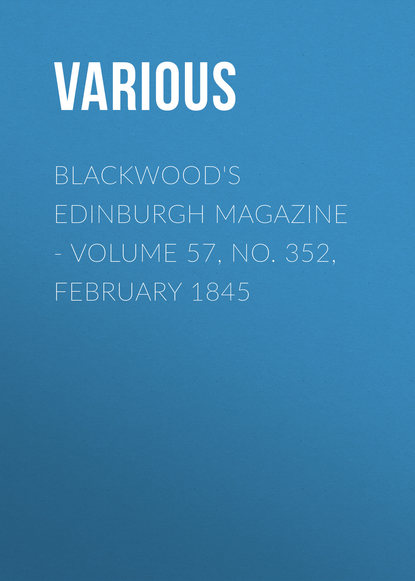По всем вопросам обращайтесь на: info@litportal.ru
(©) 2003-2024.
✖
Blackwood's Edinburgh Magazine - Volume 57, No. 352, February 1845
Автор
Год написания книги
2017
Настройки чтения
Размер шрифта
Высота строк
Поля
The priest he was standing in the quire; —
"What gay young gallant comes branking here?"
The winsome maid, to herself said she; —
"Oh, were that gay young gallant for me!"
He stepp'd o'er one stool, he stepp'd o'er two;
"Oh, maiden, plight me thy oath so true!"
He stepp'd o'er three stools, he stepp'd o'er four;
"Wilt be mine, sweet May, for evermore?"
She gave him her hand of the drifted snow —
"Here hast thou my troth, and with thee I'll go."
They went from the Kirk with the bridal train,
They danced in glee, and they danced full fain;
They danced them down to the salt-sea strand,
And they left them there with hand in hand.
"Now wait thee, love, with my steed so free,
And the bonniest bark I'll bring for thee."
And when they pass'd to the white, white sand,
The ships came sailing towards the land;
But when they were out in the midst of the sound,
Down went they all in the deep profound!
Long, long on the shore, when the winds were high,
They heard from the waters the maiden's cry.
I rede ye, damsels, as best I can —
Tread not the dance with the Water-Man!
This is strong, pure, rugged Norse, scarcely inferior, we think, in any way, to the pitch of the old Scottish ballads.
Before we forsake the North, let us try "The King in Thule." We are unfortunate in having to follow in the wake of the hundred translators of Faust, some of whom (we may instance Lord Francis Egerton) have already rendered this ballad as perfectly as may be; nevertheless we shall give it, as Shakspeare says, "with a difference."
The King in Thule
There was a king in Thule,
Was true till death I ween:
A vase he had of the ruddy gold,
The gift of his dying queen.
He never pass'd it from him —
At banquet 'twas his cup;
And still his eyes were fill'd with tears
Whene'er he took it up.
So when his end drew nearer,
He told his cities fair,
And all his wealth, except that cup,
He left unto his heir.
Once more he sate at royal board,
The knights around his knee,
Within the palace of his sires,
Hard by the roaring sea.
Up rose the brave old monarch,
And drank with feeble breath,
Then threw the sacred goblet down
Into the flood beneath.
He watch'd its tip reel round and dip,
Then settle in the main;
His eyes grew dim as it went down —
He never drank again.
We shall now venture on an extravaganza which might have been well illustrated by Hans Holbein. It is in the ultra-Germanic taste, such as in our earlier days, whilst yet the Teutonic alphabet was a mystery, we conceived to be the staple commodity of our neighbours. We shall never quarrel with a wholesome spice of superstition; but, really, Hoffmann, Apel, and their fantastic imitators, have done more to render their national literature ridiculous, than the greatest poets to redeem it. The following poem of Goethe is a strange piece of sarcasm directed against that school, and is none the worse, perhaps, that it somewhat out-herods Herod in its ghostly and grim solemnity. Like many other satires, too, it verges closely upon the serious. We back it against any production of M. G. Lewis.
The Dance of Death
The warder look'd down at the depth of night
On the graves where the dead were sleeping,
And, clearly as day, was the pale moonlight
O'er the quiet churchyard creeping.
One after another the gravestones began
To heave and to open, and woman and man
Rose up in their ghastly apparel!
Ho — ho for the dance! — and the phantoms outsprung
In skeleton roundel advancing,
The rich and the poor, and the old and the young,
But the winding-sheets hinder'd their dancing.
No shame had these revellers wasted and grim,
So they shook off the cerements from body and limb,
And scatter'd them over the hillocks.
They crook'd their thighbones, and they shook their long shanks,
And wild was their reeling and limber;
And each bone as it crosses, it clinks and it clanks
Like the clapping of timber on timber.
The warder he laugh'd, though his laugh was not loud;
And the Fiend whisper'd to him — "Go, steal me the shroud
Of one of these skeleton dancers."











